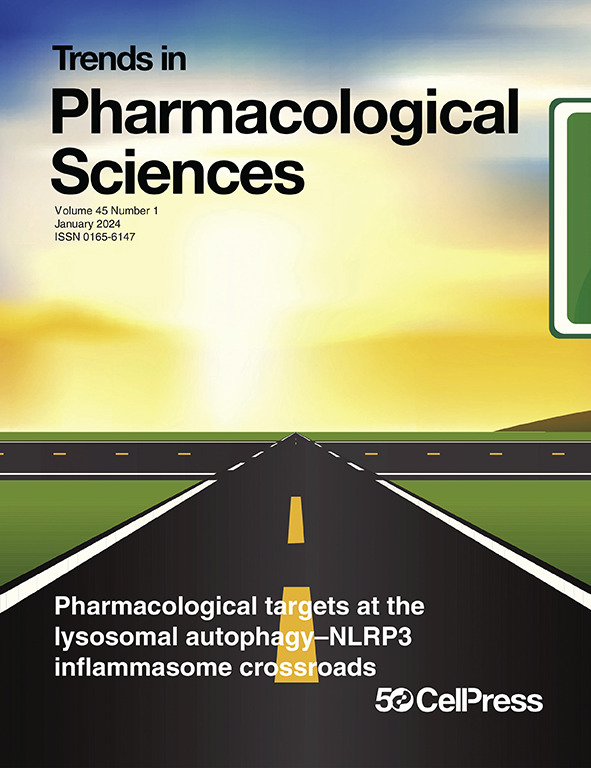明亮分选产生类似药物的抗淀粉样抗体。
IF 19.9
1区 医学
Q1 PHARMACOLOGY & PHARMACY
Trends in pharmacological sciences
Pub Date : 2025-07-01
Epub Date: 2025-06-16
DOI:10.1016/j.tips.2025.05.013
引用次数: 0
摘要
构象特异性抗体是靶向致病性淀粉样蛋白聚集体的有力工具。然而,具有药物样可开发特性的聚集体选择性抗体的发现一直是缓慢、低效的,并且难以推广到不同的淀粉样蛋白靶点。Tessier实验室已经开发了一种酵母显示筛选管道,可以发现针对不同聚集蛋白的构象特异性抗体。本文章由计算机程序翻译,如有差异,请以英文原文为准。
Bright sorting yields drug-like anti-amyloid antibodies.
Conformation-specific antibodies represent powerful tools for targeting pathogenic amyloid aggregates. However, the discovery of aggregate-selective antibodies with drug-like developability properties has been slow, inefficient, and difficult to generalise across different amyloid targets. The Tessier lab has developed a yeast-display screening pipeline that enables conformation-specific antibody discovery against diverse aggregated proteins.
求助全文
通过发布文献求助,成功后即可免费获取论文全文。
去求助
来源期刊
CiteScore
23.90
自引率
0.70%
发文量
132
审稿时长
6-12 weeks
期刊介绍:
Trends in Pharmacological Sciences (TIPS) is a monthly peer-reviewed reviews journal that focuses on a wide range of topics in pharmacology, pharmacy, pharmaceutics, and toxicology. Launched in 1979, TIPS publishes concise articles discussing the latest advancements in pharmacology and therapeutics research.
The journal encourages submissions that align with its core themes while also being open to articles on the biopharma regulatory landscape, science policy and regulation, and bioethics.
Each issue of TIPS provides a platform for experts to share their insights and perspectives on the most exciting developments in the field. Through rigorous peer review, the journal ensures the quality and reliability of published articles.
Authors are invited to contribute articles that contribute to the understanding of pharmacology and its applications in various domains. Whether it's exploring innovative drug therapies or discussing the ethical considerations of pharmaceutical research, TIPS provides a valuable resource for researchers, practitioners, and policymakers in the pharmacological sciences.

 求助内容:
求助内容: 应助结果提醒方式:
应助结果提醒方式:


